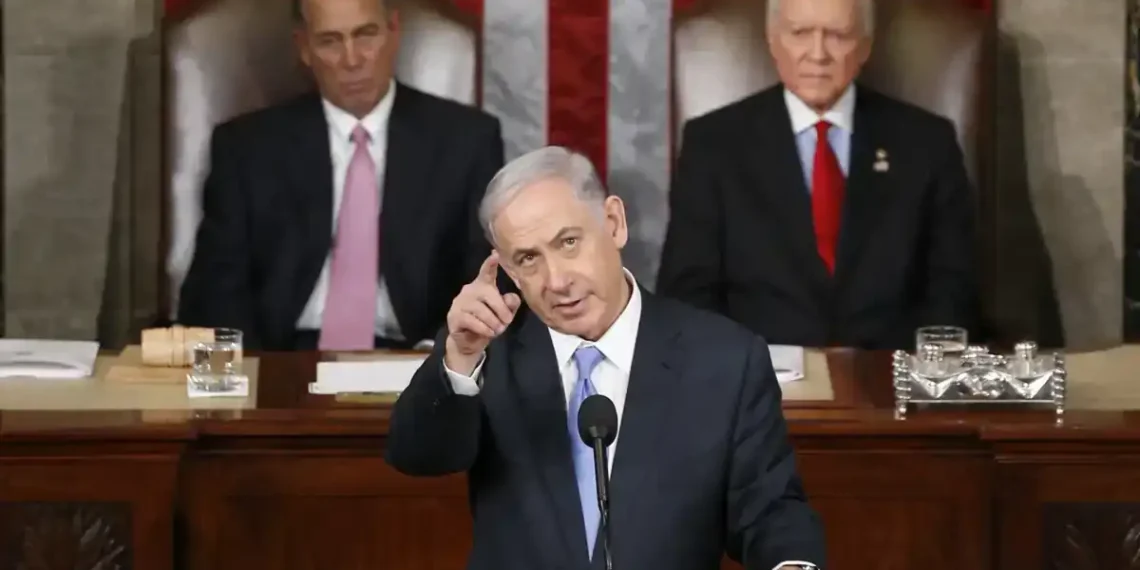Netanyahu’s Legacy Was Tarnished by Oct. 7. War With Iran May Give Him a Political Lifeline
TEL AVIV, Israel — In the aftermath of Hamas’ shocking Oct. 7 attack, Israeli Prime Minister Benjamin Netanyahu appeared politically paralyzed—diminished, demoralized, and deeply blamed. His long-cultivated image as Israel’s ultimate security hawk took a direct hit as the country reeled from its deadliest-ever assault.
Now, eight months later, with Israel engaged in open conflict with Iran and the U.S. stepping in militarily, Netanyahu is projecting a very different image: confident, reenergized, and once again central to Israel’s wartime leadership. For a man whose political career has been battered by corruption charges, internal strife, and the scars of Oct. 7, the Iran war may offer something he desperately needs—a chance at redemption.
From Fallout to Comeback?
Netanyahu, 75, has built much of his career on positioning Iran as Israel’s greatest existential threat. In that light, the current conflict has placed him back in familiar territory. U.S. military strikes against Iranian nuclear sites, which Netanyahu publicly praised, have allowed him to reframe the narrative—not as the leader blindsided by Hamas, but as the longtime prophet who warned of Iran’s danger all along.
“Netanyahu has proven that he is a phoenix,” said journalist and biographer Mazal Mualem.
But even if he’s rising from the ashes, the political fire is far from out.
War Abroad, Pressure at Home
The war with Iran may have boosted Netanyahu’s standing—at least for now—but it hasn’t erased the deep divisions at home. His approval ratings remain stubbornly low, and recent polls show he’d still struggle to form a governing coalition if elections were held today.
Analysts warn that any bounce from the Iran conflict could be short-lived, especially as the Gaza war continues to drag on, dozens of Israeli hostages remain in captivity, and calls for accountability over the Oct. 7 failure grow louder.
“Netanyahu is seen as a very divisive and destructive leader,” said Aviv Bushinsky, a former aide. “Today, Netanyahu redeemed himself, big time.” Still, he added a note of caution: “Even a king has his limits.”
The Iran Obsession
Netanyahu’s fixation on Iran is nothing new. Since his first term as prime minister in the 1990s, he’s hammered home the message that Tehran poses an existential threat—not only because of its nuclear ambitions, but because of its backing of groups like Hezbollah and Hamas.
From holding up a cartoon bomb at the U.N. to lecturing U.S. lawmakers in a 2015 speech that infuriated the Obama administration, Netanyahu has often gone all-in on his campaign against Iran’s nuclear program. He was one of the loudest critics of the U.S.-led Iran nuclear deal—something former President Donald Trump later abandoned.
His supporters say the current war validates decades of warnings. But critics argue that Netanyahu’s tunnel vision on Iran may have come at the expense of focusing on nearer-term threats—like Hamas, which ultimately staged the Oct. 7 attack with devastating success.
The Stain of Oct. 7
The events of Oct. 7 remain the deepest blot on Netanyahu’s legacy. Hamas fighters stormed into Israel, killing 1,200 people and taking 251 hostages. For a leader who prides himself on protecting Israelis, it was a brutal reckoning.
Worse still, Netanyahu deflected blame, pointing fingers at his security chiefs and rejecting calls for a public inquiry. He promised to answer for the failures—but only after the war is over, which is now entering its 21st month.
Many Israelis haven’t forgotten. Some still hold him personally responsible for a failed strategy that allowed Hamas to stockpile weapons and launch such a catastrophic attack, despite years of Israeli aid flowing into Gaza under the assumption that Hamas was contained.
A Shifting Legacy
Internationally, Netanyahu’s reputation is deeply tarnished. He faces a potential arrest warrant for war crimes in Gaza and is widely condemned across the Arab world. Yet within Israel, where he remains laser-focused, the narrative is more nuanced.
The direct involvement of the U.S. military against Iran—long viewed by Israelis as the gravest threat—has resonated with many. Netanyahu’s decades-long campaign may now be seen by some as prescient, not paranoid.
Still, political survival is far from guaranteed. His critics liken his situation to that of Winston Churchill—celebrated as a wartime leader, yet swiftly voted out once the fighting stopped.
Netanyahu, a master political tactician often described as a “survivor,” is eyeing the long game. He still hopes to broker a normalization deal with Saudi Arabia, a legacy-defining goal. But with elections looming next year and public frustration simmering, the clock is ticking.
Whether he emerges as the leader who redeemed his legacy—or simply outlasted it—remains to be seen.
This article was rewritten by JournosNews.com based on verified reporting from trusted sources. The content has been independently reviewed, fact-checked, and edited for accuracy, neutrality, tone, and global readability in accordance with Google News and AdSense standards.
All opinions, quotes, or statements from contributors, experts, or sourced organizations do not necessarily reflect the views of JournosNews.com. JournosNews.com maintains full editorial independence from any external funders, sponsors, or organizations.
Stay informed with JournosNews.com — your trusted source for verified global reporting and in-depth analysis. Follow us on Google News, BlueSky, and X for real-time updates.














